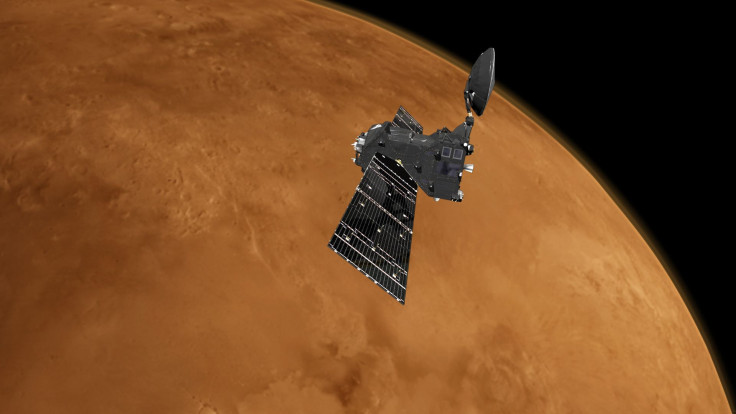ESA Mars Mission Detects New Gas Traces In Red Planet’s Atmosphere
KEY POINTS
- The ESA's ExoMars Trace Gas Orbiter discovered traces of ozone and carbon dioxide in Mars' atmosphere
- Researchers said the gases were discovered in a part of the atmosphere where they expected to find signs of methane
- The presence of the gases could provide information about Mars' geological or biological features
An orbiter sent by the European Space Agency (ESA) to Mars detected signatures of gas from the Red Planet. Researchers believe the presence of the gas signatures could provide new information regarding Mars’ biological or geological activity.
The ESA mission that made the discovery is called the ExoMars Trace Gas Orbiter (TGO). Launched in 2016, the goal of the TGO is to investigate Mars’ atmosphere by looking for traces of methane and other gases.
Recently, the TGO came across traces of two gases from the Red Planet’s atmosphere. According to the ESA, the signatures belonged to ozone and carbon dioxide. The findings of the TGO were presented in two different studies published in the journal Astronomy and Astrophysics.
One of the studies was led by Kevin Olsen of the University of Oxford in the U.K., while the other one was led by Alexander Trokhimovskiy of the Space Research Institute of the Russian Academy of Sciences in Moscow, Russia.
According to Olsen, the gas signatures detected by the TGO were discovered in a part of the atmosphere where methane most likely exists.
“These features are both puzzling and surprising,” he said in a statement. “They lie over the exact wavelength range where we expected to see the strongest signs of methane. Before this discovery, the CO2 feature was completely unknown, and this is the first time ozone on Mars has been identified in this part of the infrared wavelength range.”
For the ESA, finding traces of various gases in the atmosphere could provide valuable information regarding the main properties of Mars. As noted by the agency, the presence of the gases in the Martian atmosphere may have been triggered geological or biological processes on the Red Planet.
“These findings will prompt a thorough analysis of all the relevant data we’ve collected to date – and the prospect of new discovery in this way is, as always, very exciting,” Håkan Svedhem, the project scientist for TGO at ESA, explained. “Each piece of information revealed by the ExoMars Trace Gas Orbiter marks progress towards a more accurate understanding of Mars, and puts us one step closer to unraveling the planet’s lingering mysteries.”

© Copyright IBTimes 2024. All rights reserved.





















